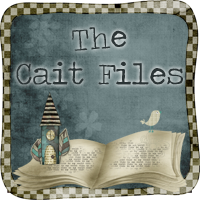Published: 1st June 2011
Publisher: Strident
Goodreads description:
Pierre Anthon left school the day he found out that it was not worth doing anything as nothing mattered anyhow. The rest of us stayed behind. And even though the teachers carefully cleared up after Pierre Anthon in the class room as well as in our heads, a bit of Pierre Anthon remained within us. Perhaps this is why things later happened the way they did ...
Thus begins the story of Pierre Anthon, a thirteen year old boy, who leaves school to sit in a plum tree and train for becoming part of nothing. "Everything begins just in order to end. The moment you were born you began to die, and that goes for everything else as well." Pierre Anthon shouts and continues: "The whole thing is just one immense play which is about pretending and about being best at exactly that."
I removed the end of the description, cause it's a bit spoilerific
My thoughts:
This is existentialism for people who don't want to read Sartre. And as someone who's read Sartre, I'm telling you, read this instead. Pierre Anthon is in the depths of existential despair. He has come to the conclusion that, as nothing matters, there's no point doing anything. This shakes his classmates to the core as they've always been taught to be something, or someone. They create a pile of meaning, with the aim of convincing Pierre Anthon that life is not meaningless and thus hoping he will stop telling them it is. This starts off as a group of teens with the best intentions but quickly, as most things do, becomes a manipulation, a power struggle, an example of capitalism and a showcase of what humanity is capable of.
This is not an easy book to read. I wont lie, it's disturbed and haunting and downright creepy. But more than that it's though provoking and inspiring and simply breathtaking. It contains so much that people really should think about. At points I did get disillusioned with it, thinking that all it showed was that kids can be a spiteful bunch, but after sticking with it I can definitely say it's a very poignant piece.
Nothing has a very existentialistic theme, to me it said that there is no universal meaning, that no one should force meaning on another person, no one has the right to decide what should and should not matter and how it matters and how much it should matter to us, as individuals. But I guess the great thing about this book is that interpretations of it can be totally subjective. I think so much can be learnt about human motivations and the state of our society from this book, and the beauty is it can be done in such an accessible way. There's no need to pick up an existentialism textbook or a copy of beyond good and evil, just read this neat little story.
I'd definitely give this 5/5 and if you're looking for something a little philosophical in your YA, or you're interested in existentialism, this is the book for you.
My thoughts:
This is existentialism for people who don't want to read Sartre. And as someone who's read Sartre, I'm telling you, read this instead. Pierre Anthon is in the depths of existential despair. He has come to the conclusion that, as nothing matters, there's no point doing anything. This shakes his classmates to the core as they've always been taught to be something, or someone. They create a pile of meaning, with the aim of convincing Pierre Anthon that life is not meaningless and thus hoping he will stop telling them it is. This starts off as a group of teens with the best intentions but quickly, as most things do, becomes a manipulation, a power struggle, an example of capitalism and a showcase of what humanity is capable of.
This is not an easy book to read. I wont lie, it's disturbed and haunting and downright creepy. But more than that it's though provoking and inspiring and simply breathtaking. It contains so much that people really should think about. At points I did get disillusioned with it, thinking that all it showed was that kids can be a spiteful bunch, but after sticking with it I can definitely say it's a very poignant piece.
Nothing has a very existentialistic theme, to me it said that there is no universal meaning, that no one should force meaning on another person, no one has the right to decide what should and should not matter and how it matters and how much it should matter to us, as individuals. But I guess the great thing about this book is that interpretations of it can be totally subjective. I think so much can be learnt about human motivations and the state of our society from this book, and the beauty is it can be done in such an accessible way. There's no need to pick up an existentialism textbook or a copy of beyond good and evil, just read this neat little story.
I'd definitely give this 5/5 and if you're looking for something a little philosophical in your YA, or you're interested in existentialism, this is the book for you.








































I'll check this out sometime1
ReplyDeleteWhen you mentioned Sartre, my first thought was whoa, this is not your usual YA book :P. I don't know much about existentialism (haven't studied it) but it's always been an idea that has intrigued me. I'm not sure about the creepiness, but this definitely sounds like an interesting book. Glad you enjoyed it! :)
ReplyDeleteOooooh! I think I might add this to my 'to read' list :) Looks really interesting! x
ReplyDeleteI just read this a little while ago. I basically agree with everything you said. The book was disturbing and a little on the train-wreck side. It wasn't easy to read, but was definitely rewarding.
ReplyDeleteHm, I wonder who did a philosophy degree. This does sound pretty amazing, i remember you telling me about it. I think I could probably relate to the main character in this book right about now. Great review as always =].
ReplyDeleteAmy
I'm really curious about this book. I've never read of it before but I think I may have to. I haven't read much of philosophy but I've always been interested in it. Thanks for the great review!
ReplyDeleteJanne Teller's literature that also includes essays and short stories, has received numerous literary grants and awards over the years.
ReplyDeleteI wanna be part of your comments.Please accept me....
ReplyDeleteJanne Teller has received numerous other literary grants and awards, and her literature is translated into many languages, including French, German, Spanish and English.
ReplyDeleteThus begins the story of Pierre Anthon, a thirteen year old boy, who leaves school to sit in a plum tree and train for becoming part of nothing
ReplyDeleteI removed the end of the description, cause it's a bit spoilerific
ReplyDeleteThis is existentialism for people who don't want to read Sartre. And as someone who's read Sartre, I'm telling you, read this instead
ReplyDeleteit's always been an idea that has intrigued me. I'm not sure about the creepiness, but this definitely sounds like an interesting book. Glad you enjoyed it.
ReplyDeleteThe moment you were born you began to die, and that goes for everything else as well." Pierre Anthon shouts and continues: "The whole thing is just one immense play which is about pretending and about being best at exactly that.
ReplyDeleteold boy, who leaves school to sit in a plum tree and train for becoming part of nothing
ReplyDeleteas most things do, becomes a manipulation, a power struggle, an example of capitalism and a showcase of what humanity is capable of.
ReplyDelete